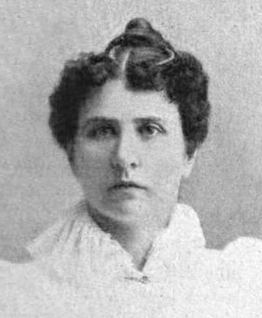Search Results - Sheldon, Lurana, 1862-1945
Lurana W. Sheldon
 Lurana W. Sheldon (after marriage, Ferris; pen names, Richard Hackstaff, Stanley Norris, Grace Shirley; April 11, 1862 – June 11, 1945) was an American author of novels, poems, and short stories, as well as a newspaper editor. Her published work amounted to over one million words. She claimed to have earned her living in fifteen different and totally dissimilar lines of business, including bookkeeping, business management, journalism, work in a chemical laboratory, buying dry goods, and writing stories. She was a suffrage activist, and she opposed prohibition.
Lurana W. Sheldon (after marriage, Ferris; pen names, Richard Hackstaff, Stanley Norris, Grace Shirley; April 11, 1862 – June 11, 1945) was an American author of novels, poems, and short stories, as well as a newspaper editor. Her published work amounted to over one million words. She claimed to have earned her living in fifteen different and totally dissimilar lines of business, including bookkeeping, business management, journalism, work in a chemical laboratory, buying dry goods, and writing stories. She was a suffrage activist, and she opposed prohibition. Sheldon was the first poet in the United States to use her talents for the birth control movement. So many of Sheldon's poems appeared on the editorial page of ''The New York Times'' that her name became closely associated with that paper. She is also remembered for her "Marion Marlowe" dime novel series including ''My Queen'', which was an exception to the romance stories of the day where the heroine married at the end of the novel, leaving no compelling reason to write a sequel.
A medical education, coupled with opportunity for wide observation of the poor, gave Sheldon knowledge along sociological lines. One of her achievements was a sociological lecture in verse, entitled "The Alien," which was heard in New York and elsewhere in 1915. One poem of this lecture, "The Night Court," was widely read and copied. Sheldon was the author of several novels and serial stories, many short stories and special articles, and more than one thousand poems, the latter having appeared in nearly every magazine and paper of prominence in the U.S. For many years, she also wrote a large number of the unsigned verses. Though without funds at the beginning of her career, she met every expense that she ever incurred without once asking for an "extension of time" or credit. Provided by Wikipedia
